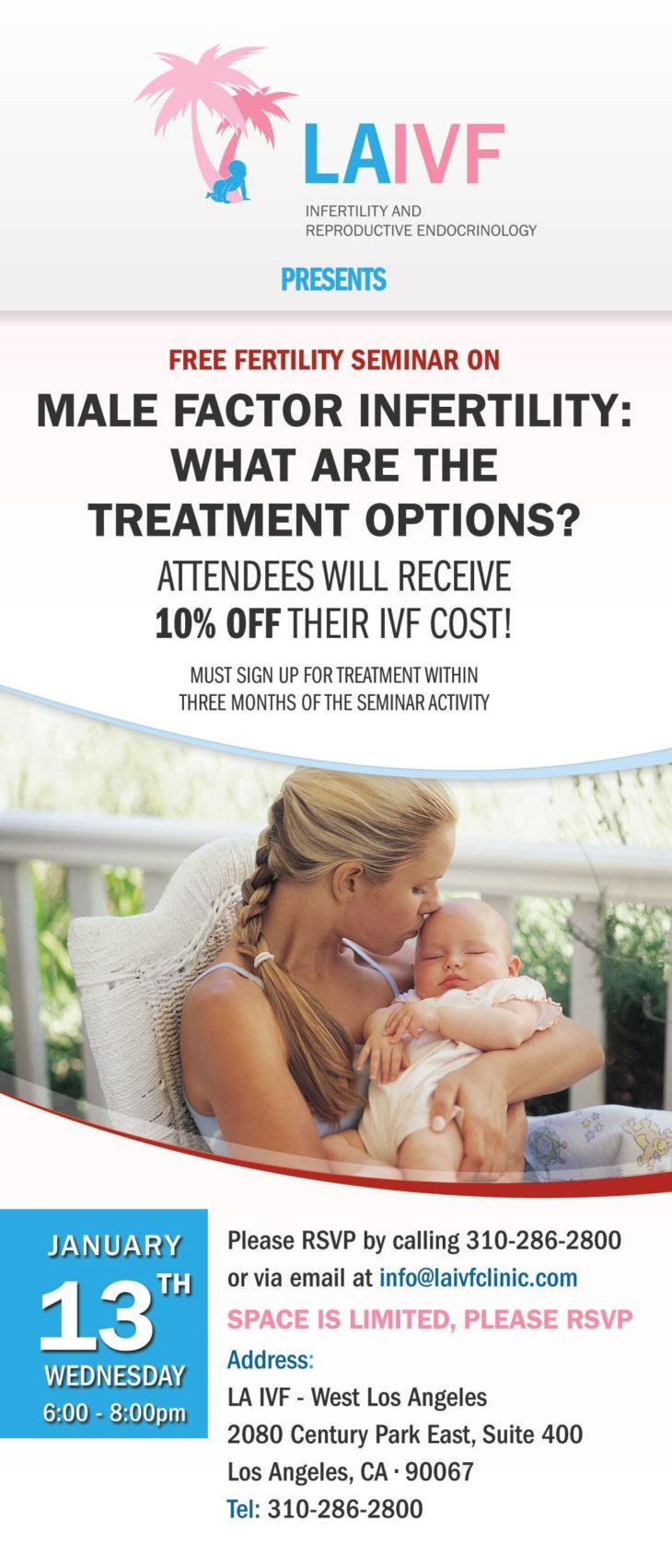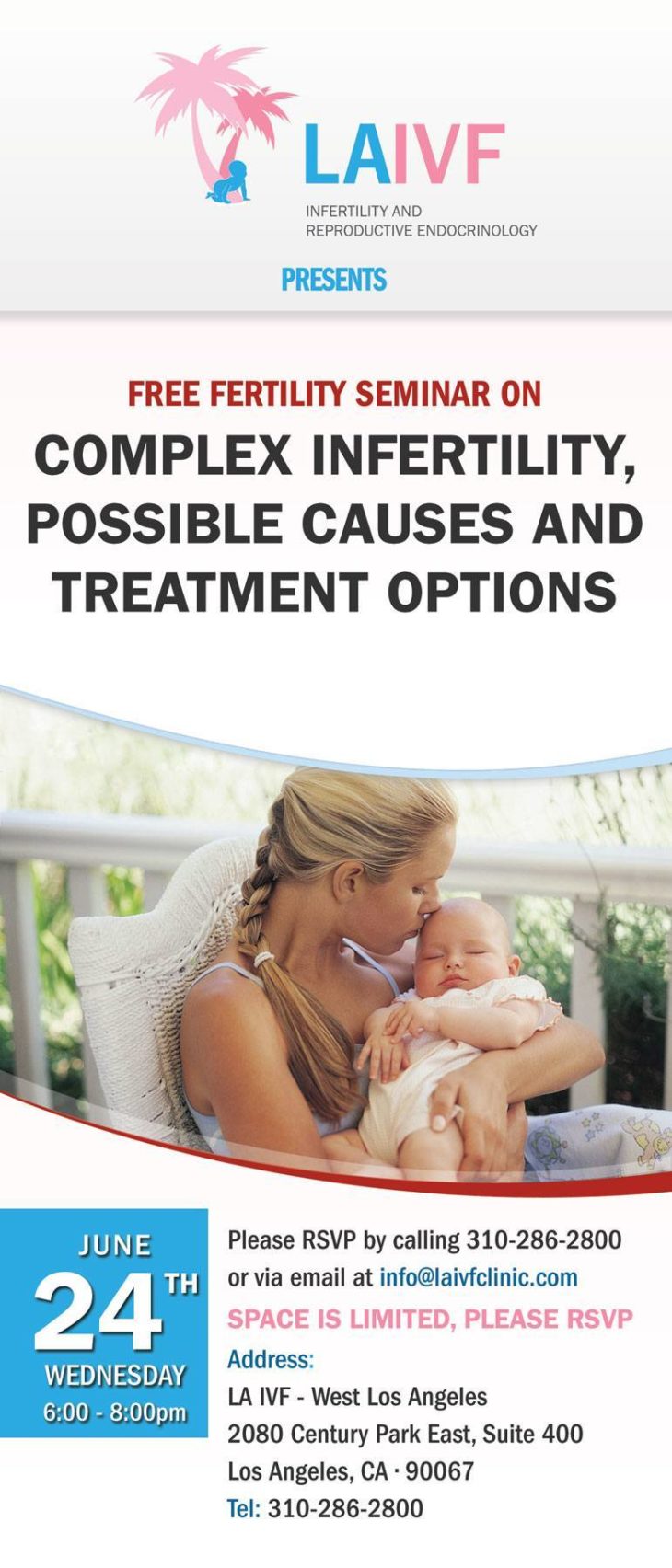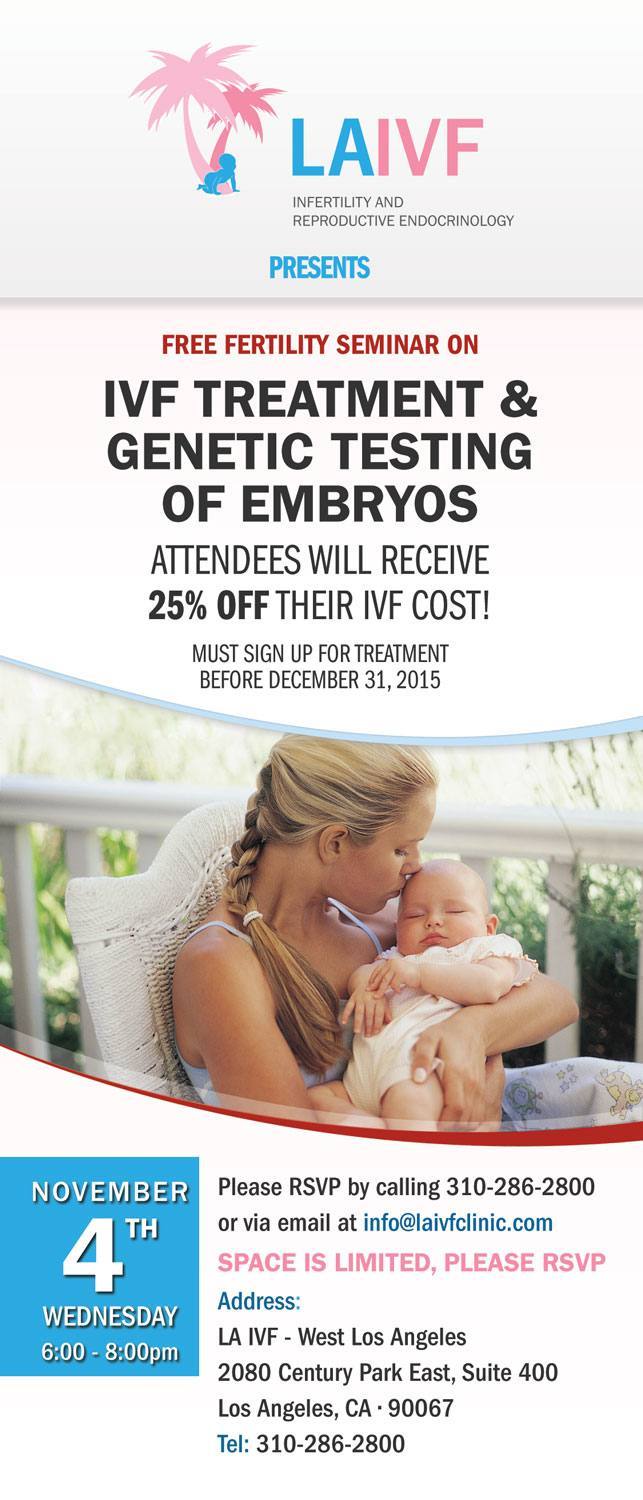Caltech Educational Seminar

Dr. Bayrak recently gave an educational seminar at Caltech to the graduate students. His talk focused on fertility preservation, egg freezing and strategies to improve fertility in high-risk populations. If you would like to sign up for an educational seminar activity and qualify for a free consultation, please follow the news and updates section on […]
Free Fertility Seminars – APRIL 18 & 20

FREE FERTILITY SEMINARS: April 18 & 20, 2016 Monday April 18, 2016 Location: LA IVF Pasadena – 10 Congress St #509, Pasadena, CA 91105 Time: 6pm-8pm Topic: POLYCYSTIC OVARY SYNDROME (PCOS) AND OVULATION PROBLEMS Wednesday April 20, 2016 Location: LA IVF West Los Angeles – 2080 Century Park E #400, Los Angeles, CA 90067 Time: 6pm-8pm Topic: EGG FREEZING AND FERTILITY PRESERVATION
PGD (PGS) | PREIMPLANTATION GENETIC DIAGNOSIS (SCREENING)
PGD (PGS) refers to obtaining information about the genetic and chromosomal make-up of an embryo or egg prior to implantation. The goals of testing include improvement of the chances of pregnancy within an embryo transfer cycle, lowering the risk of having a miscarriage and increasing the likelihood of having a healthy baby. PGD can test […]
Free Fertility Seminar – January 13 & 15

FREE FERTILITY SEMINARS: JANUARY 13 & 15, 2016 Wednesday January 13, 2016 Location: LA IVF West Los Angeles – 2080 Century Park E #400, Los Angeles, CA 90067 Time: 6pm-8pm Topic: MALE FACTOR INFERTILITY: WHAT ARE THE TREATMENT OPTIONS? Friday January 15, 2016 Location: LA IVF Pasadena – 10 Congress St #509, Pasadena, CA 91105 Time: 6pm-8pm Topic:TUBAL DISEASE: WHAT ARE THE […]
June 24, 2015 – Free Fertility Seminar by Dr. Bayrak

FREE FERTILITY SEMINAR ON COMPLEX INFERTILITY, POSSIBLE CAUSES AND TREATMENT OPTIONS Date: Wednesday June 24, 2015 Time: 6pm-8pm Dr. Bayrak, Medical Director of LA IVF Clinic will be discussing complex infertility, possible causes and treatment options. This will be an interactive session and participants will be offered a free telephone or in-person consultation with Dr. Bayrak […]
Press Release: Dr. Bayrak Launches Fertile Vitamin
LA IVF Founder Dr. Aykut Bayrak announced the launch of Fertile Vitamin, a series of supplements designed to enhance fertility for both men and women. Fertile Vitamin is available for purchase on Amazon as well as at LA IVF locations. Read the press release here: http://www.prnewswire.com/news-releases/la-ivf-founder-dr-aykut-bayrak-launches-fertile-vitamin-for-fertility-treatment-patients-300045735.html
Press Release: Fertile Vitamin at Hollywood Award Show
Dr. Bayrak’s Fertile Vitamin was distributed at the 52nd Annual Publicists Guild Awards at the Beverly Hilton in Los Angeles on Feb. 20. Fertile Vitamin enhances reproductive health in men and women. The vitamins are now available through Amazon and at LA IVF’s clinics in the U.S. Read the press release here: http://prn.to/1EsJKMH
New Saturday Hours
LA IVF now offers Saturday morning appointments for New Patient Consultations. Please contact our office at 310-286-2800 for scheduling. We look forward to meeting you!
Is AMH (Anti-Mullerian Hormone) a Reliable Marker for Ovarian Reserve?
Are you concerned about your ovarian reserve? Well, AMH may just be the right test for you. You may want to get the level checked to find out whether your egg reserve is declining or not. If the egg reserve is declining, egg freezing may be a good option because the sooner you act on […]









